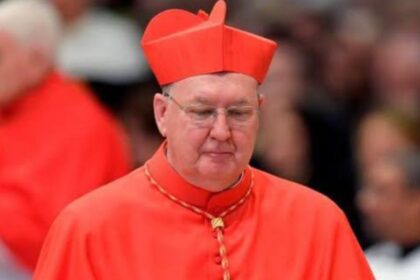Economic and Financial Crimes Commission (EFCC) Acting Chairman Ibrahim Mustafa Magu spoke yesterday on the fight against corruption, saying it will be unsparing.
Besides, the EFCC boss agreed that the rate of convictions in corruption cases may be low, but he is sure that more looters will go to jail this year.
The anti-graft czar, fondly called The General, said every stakeholder seems to be more serious about fighting corruption. “From all indications, the judges are more serious, everybody is cooperating and this year, we will see more politically-exposed persons convicted. We will flush out corrupt people.”
He assured all that the process will be transparent. He also promised to discharge his responsibility “with the fear of God, in the national interest, and strictly observing the rule of law.”
Magu, who spoke during a visit to The Nation’s headquarters in Lagos, said he had been trying to mobilise Nigerians as stakeholders in the fight against corruption.
The EFCC boss praised the management and editorial team of The Nation, saying the paper has come to stay among the builders and molders’ of the nation. “Within a space of nine years, your brand has joined the league of shapers of our society by your incisive and, sometimes, explosive reporting. I must say that as an agency which believes in vigorous expression of its mandate, the EFCC is at home with your style of reporting and the candour of your esteemed columnists,” he said.
Magu said he was mobilising support, opinions, ideas and strategies that are necessary to strengthen the anti-graft battle.
“We need more support; it is about Nigeria, not an individual, the fight is for everybody, from the media we have to go to the grassroots, we will take it to children in the schools; we have to tell the children that corruption is bad, tell them why there is no chair in the classroom.
“We will sensitise everybody to the evil of corruption. We need to let people know that corruption is bad because some people don’t seem to know,” Magu said.
In his view, corruption is an attack on Nigeria and a “deliberate and calculated wickedness” against the nation’s existence. He decried the impunity with which public servants helped themselves to the commonwealth of Nigerians.
“The impunity is too much. Sometimes I shed tears in the morning before I go to the office. It is just unbelievable; the rot is terrible. What I am saying is that people who know they have stolen our commonwealth should bring it back,” the EFCC chief said, adding:
“People arrogate things to themselves. They have taken our money and are bold enough to say they are not going to return it. The money belongs to the people; they should return the money quietly; let there be voluntary compliance. Let them voluntarily come out to say ‘this is what I have stolen’ and the government will take it. I think that is the best thing to do.”
Magu commented on the handcuffing of Peoples Democratic Party (PDP) spokesperson Olisa Metuh when he appeared in court, saying, there is nothing wrong in handcuffing an accused. “It is not coming from us(Nigerian Prisons Service —NPS— brought Metuh to court), but there is nothing wrong with that actually. They have a right to use their discretion; you are not there, there must be reason. There are instances when you handcuff a suspect, but let them explain themselves.”
He said the Commission was receiving renewed interest and cooperation from foreign agencies and there will be no hiding place for treasury looters.
He said the EFCC was building a strong institution with enhanced capacity for the staff but will require more funding. “The people need their capacity to be enhanced; they need funding. We are still renting offices all over the country. There is one massive building of the EFCC that has not advanced because of funding. If we go into that place, we are going to have security of documents, evidences and witnesses. The staff will be better protected. This is the kind of intervention that we are asking the Nigerian people.”
Magu said there will be need for new laws tailored for fighting corruption. “It is important for the lawmakers to be put on the hot seat. If you make one law for the person who steals a goat to go to jail for 11 years and somebody who with pen and paper commits money laundering of over N5 billion for minor years, it is not proper.”
To him, what is seen as the low rate of conviction in corruption-related cases is not the EFCC’s problem.
Magu said: “It is not the job of the EFCC to convict people. The EFCC hands of after taking them to court with evidence and witnesses. But, they know how to drag this thing. After six, seven or 10 years’ witnesses die, you can no longer call for evidence and Nigerians are saying EFCC has not convicted this or that. So, we need to refocus and make new laws that will channel our activities properly.”
-The Nation



